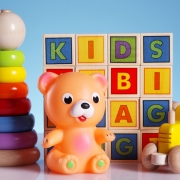Divorce Mediation vs Litigation: Trading Hope for Certainty
Divorce Mediation vs Litigation: Trading Hope for Certainty
Divorce can be one of life’s most stressful experiences, but the choice between divorce mediation vs litigation can make all the difference. When couples rely on litigation to resolve their disputes, they hand over control to attorneys and a judge who don’t truly know them or their families. Mediation offers an alternative—one where you and your spouse stay in control and co-create solutions that truly work for your family. It’s not about “trading hope” as much as it is about “gaining certainty.”
Let me share two stories that highlight the stark differences between divorce mediation vs litigation.
Story 1: A Parenting Schedule and Holidays
Litigation: Sarah and Mike are in a contested divorce action fight relying on their attorneys.
Sarah wants to have Christmas morning with the kids every year, while Mike insists on keeping them for Christmas Eve and the morning as part of his extended family tradition. Their attorneys assure them the court will sort it out, but months go by due to a backlog in the court system. When the day finally comes, the judge issues a rigid cookie-cutter ruling: Sarah gets Christmas on odd years, Mike on even years—with no flexibility. Neither parent’s traditions are fully honored, and the lack of input leaves them both feeling sidelined. The kids, caught in the middle, are shuttled between houses without understanding why the holidays suddenly feel so fractured.
Mediation: Lisa and John are working with a divorce mediator.
They sat down with a mediator to work through their priorities for the holidays. The children love the tradition of Lisa hosting Thanksgiving for her extended family while the children have always enjoyed going with John to the local Thanksgiving high school football game. Likewise, while John cherished spending Christmas morning opening gifts with the kids, Lisa cared most about the children attending church on Christmas Eve. Together, they crafted a plan:
- Thanksgiving:
- Wednesday 5 PM through Thanksgiving at 12 with Mike, which enabled the children to go to the football game
- Thanksgiving Day at 12 through Saturday morning at 9 with Lisa, which allowed the children to attend the family Thanksgiving (and gave Lisa some child-free time to get the house ready!)
- Christmas:
- Christmas Eve 12 PM through 8PM with Lisa every year, which allowed for the children to attend 4PM mass
- Christmas Eve 8PM through December 26th 9AM with Mike every year, which allowed the children to continue the tradition of Mike dressing as Santa Saturday morning with a bag of gifts (and the day for the kids to play with their new toys)!
The result? A plan tailored to their family’s traditions, ensuring their kids felt stability and love during the holidays.
Story 2: What to Do with the Marital Home
Litigation: Rafael and Malik are fighting the court over what to do with their house.
Rafael wanted to keep it to maintain stability for the kids, while Malik felt selling it was the only fair solution. In court, their dispute dragged on for months, racking up legal fees. The judge ultimately ordered the home sold, leaving Rafael devastated and Malik equally frustrated. Neither felt the outcome reflected their needs.
Mediation: Maria and Tom have decided to hire a mediator.
Tom and Maria decided to work through the difficult decisions about their house because they believed that despite the hard feelings property issues don’t have to be a battle. With the mediator’s guidance, they decided to the following plan:
- Maria would remain in the house for two more years so the kids could finish school
- After two years she would sell it and split the proceeds.
- Tom will receive a partial buyout upfront so he can move forward with relocating comfortably
This cooperative approach avoided the financial strain of litigation and ensured a solution both could accept.
Divorce Mediation–Even When Collaboration is Hard
Collaboration isn’t always easy—especially when emotions run high or trust is fractured. Even when the negotiation is stressful and challenging, there are usually ways to work through it. But even in higher-conflict situations, mediation provides a pathway to maintaining control over your future. Rolling the dice in court often leads to unpredictable and unsatisfying outcomes. Mediation, on the other hand, allows you to shape decisions that empower you. Taking ownership of the outcome—even when compromises are difficult—is far more rewarding than gambling on a judge’s ruling.
Divorce Mediation Can Lead to a More Certain Future
Mediation provides you and your spouse with something litigation rarely does: certainty.
Together, you create solutions that reflect your unique needs and goals. You save time, money, and stress—and most importantly, you maintain control of your future. Isn’t that a better trade?
Photo by Edge2Edge Media on Unsplash








